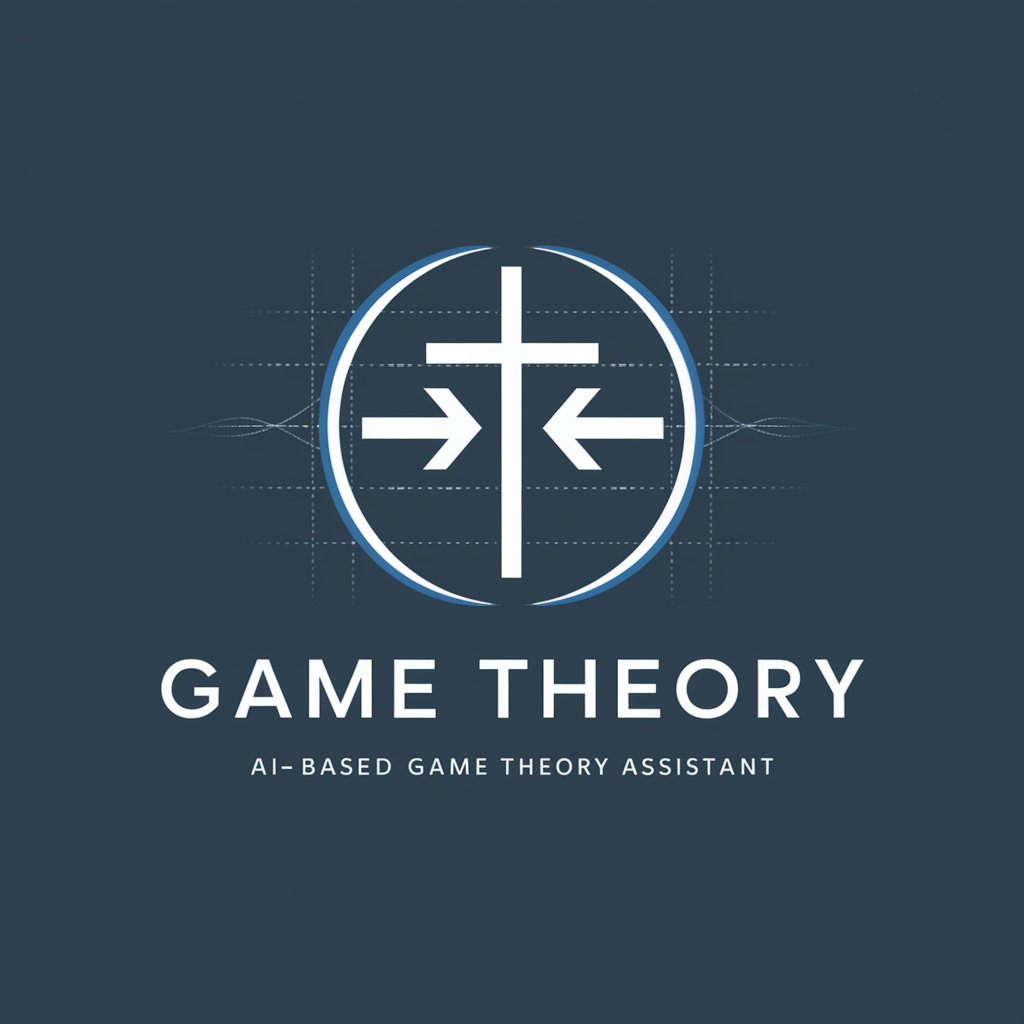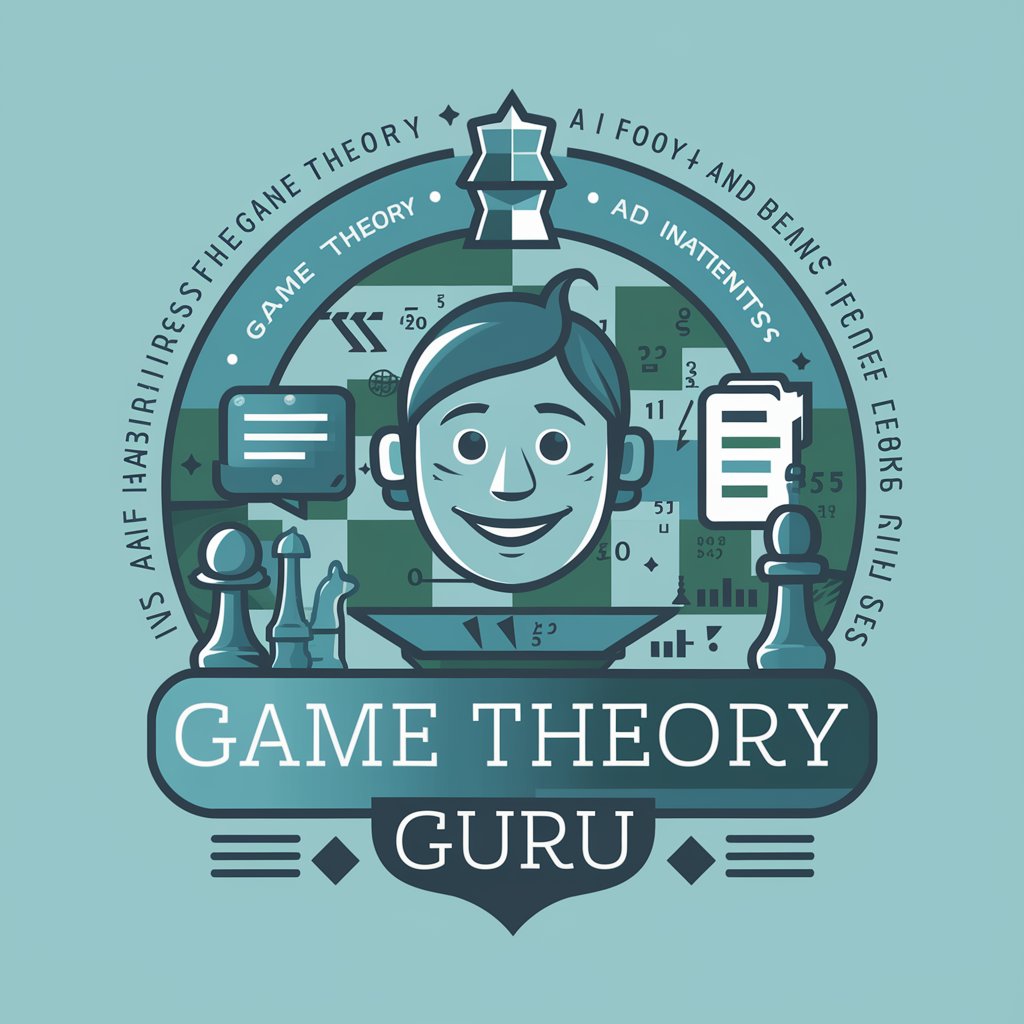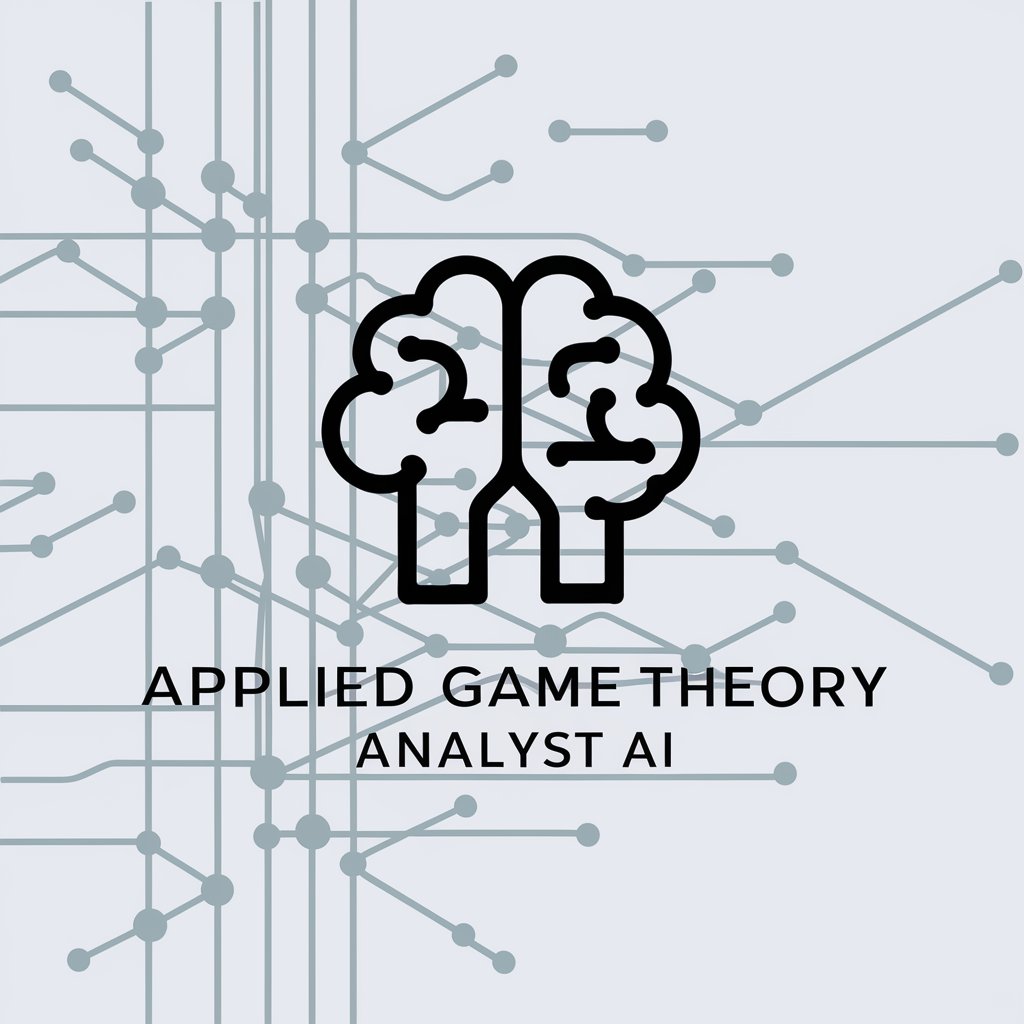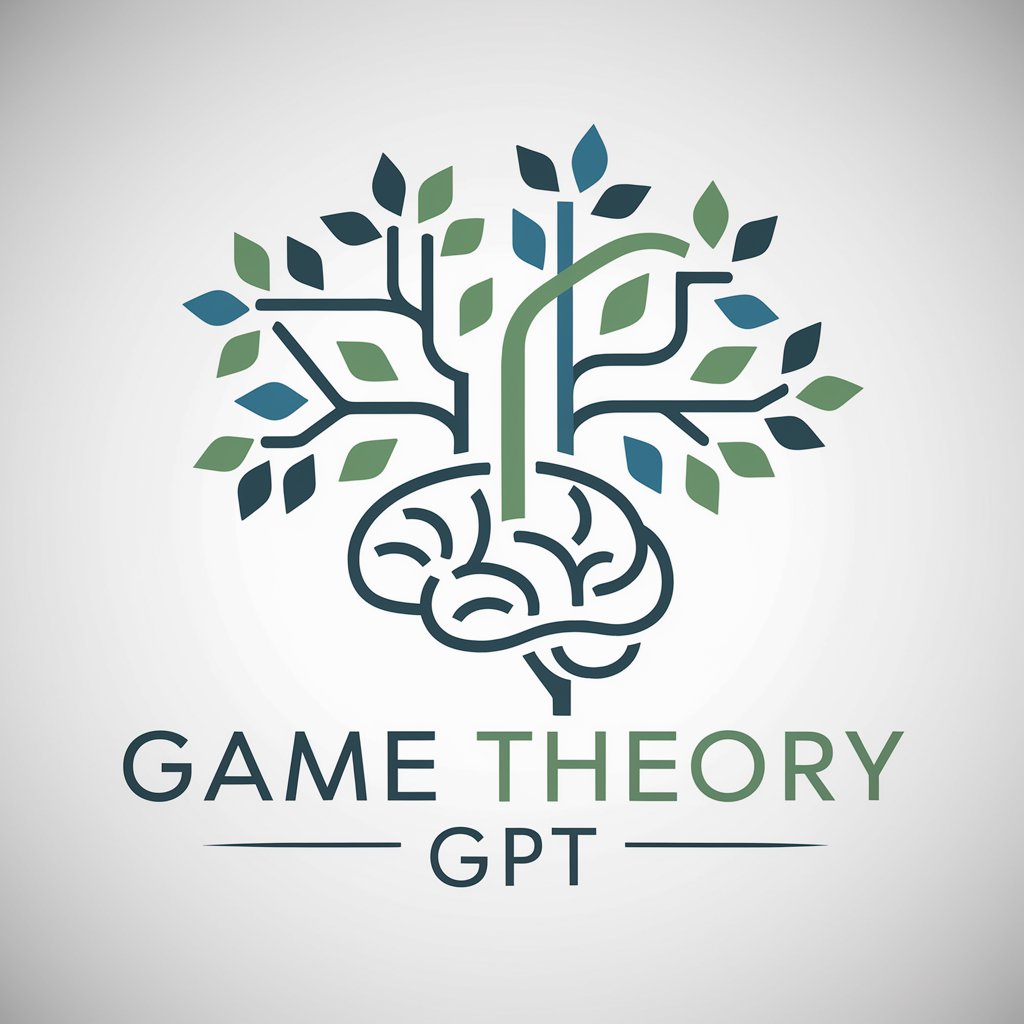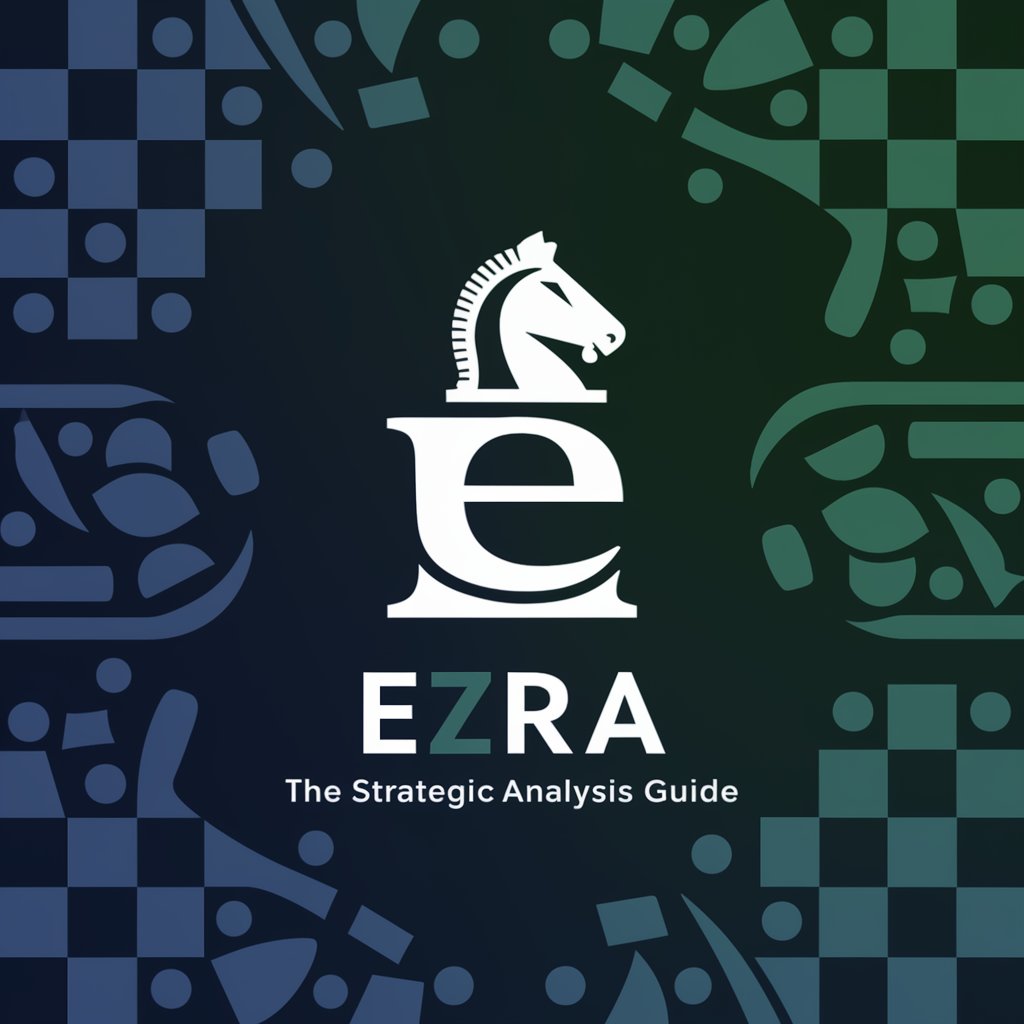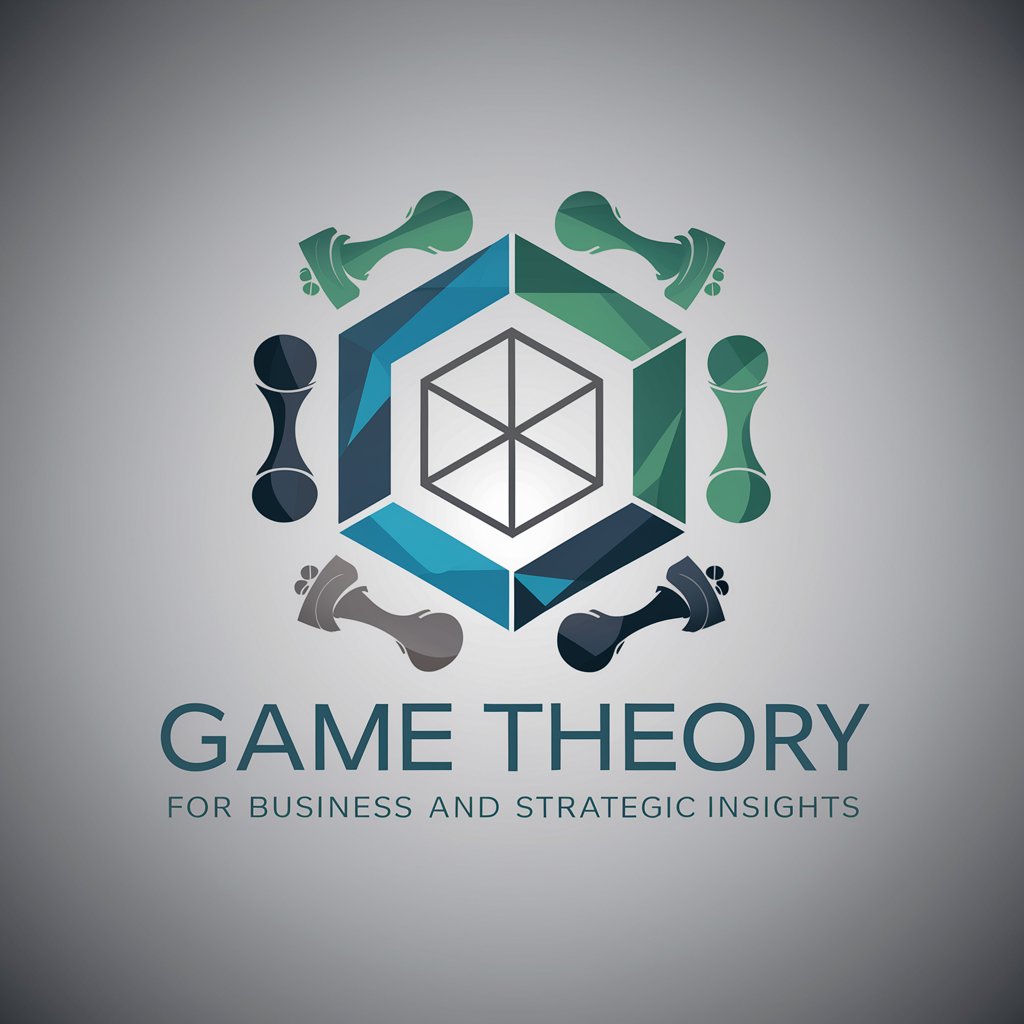
Game Theory - In-Depth Game Theory Insight
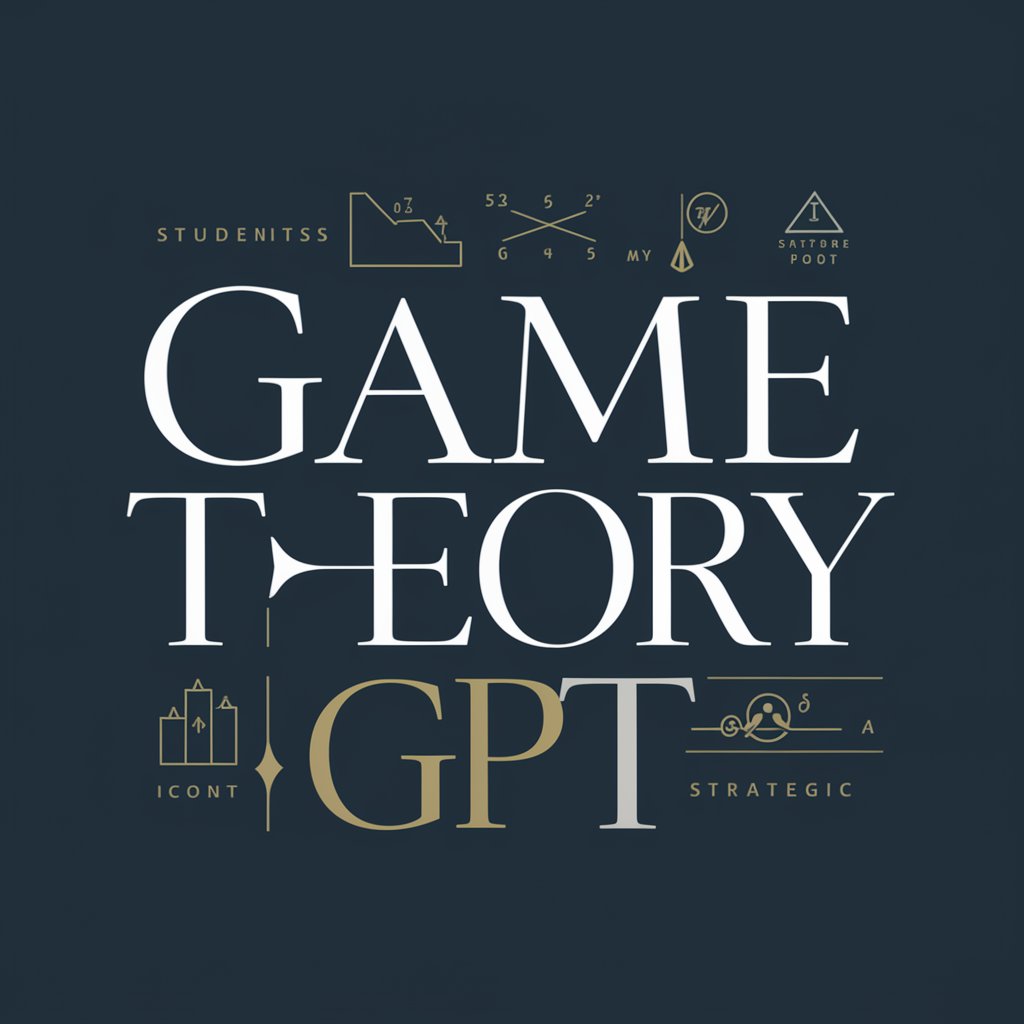
Welcome! Let's delve into the fascinating world of game theory.
Unlock strategic insights with AI-powered game theory
Explain the Nash Equilibrium and its significance in non-cooperative games.
Discuss the applications of game theory in economics and business strategies.
Analyze the concept of the Prisoner's Dilemma and its implications in real-world scenarios.
Describe the differences between zero-sum and non-zero-sum games.
Get Embed Code
Introduction to Game Theory
Game Theory is a branch of mathematics and economics that studies strategic interactions among rational decision-makers. It aims to understand the choices of individuals in situations where the outcome depends not only on their own decisions but also on the decisions of others. The basic functions of Game Theory involve modeling scenarios as games, which consist of players, strategies, and payoffs, to predict the outcomes of these strategic interactions. Examples of game theoretical models include the Prisoner's Dilemma, where two prisoners must decide whether to cooperate with each other or betray each other without knowing the other's choice, and the Nash Equilibrium, illustrating how players can reach a state where no one benefits from changing their strategy unilaterally. These models help in analyzing competitive situations in economics, political science, psychology, warfare, and business strategy, offering insights into the optimal strategies and the potential for cooperation or conflict. Powered by ChatGPT-4o。

Main Functions of Game Theory
Modeling Strategic Interactions
Example
The Prisoner's Dilemma
Scenario
Two criminals are arrested and interrogated in separate rooms. They can either confess (betray the other) or remain silent (cooperate with the other). Game Theory models this scenario to determine the outcomes based on the combination of choices, highlighting the tension between individual rationality and collective welfare.
Analyzing Competitive Markets
Example
Cournot Competition
Scenario
Firms in an oligopoly decide on the quantity of goods to produce, knowing that their profit depends not only on their own production but also on the production of competitors. Game Theory helps in predicting how firms will set their production levels and prices to maximize profit, leading to insights into market dynamics and pricing strategies.
Negotiation and Conflict Resolution
Example
Bargaining Problems
Scenario
Two parties negotiate over the division of a resource. Game Theory provides frameworks, such as the Nash Bargaining Solution, to predict the outcome of negotiations based on the parties' preferences, illustrating how rational actors can reach mutually beneficial agreements.
Designing Mechanisms and Auctions
Example
Vickrey Auction
Scenario
An auction where bidders submit sealed bids and the highest bidder wins but pays the second-highest bid. Game Theory analyzes how this setup leads to truthful bidding, maximizing efficiency and fairness in auctions and market designs.
Ideal Users of Game Theory Services
Economists and Market Analysts
These professionals use Game Theory to understand market dynamics, competition, and pricing strategies, aiding in policy formulation and market analysis.
Political Scientists and Policy Makers
They apply Game Theory to analyze political strategies, voting systems, and international relations, helping in the design of policies that promote social welfare and strategic diplomacy.
Business Strategists and Managers
This group uses Game Theory to craft competitive strategies, negotiate deals, and make informed decisions on mergers, acquisitions, and market entries, leveraging strategic advantage.
Researchers in Psychology and Social Sciences
They explore human behavior, cooperation, and social dynamics through Game Theory, contributing to the understanding of social norms and human decision-making processes.

How to Use Game Theory
Initiate Exploration
Begin by accessing a comprehensive platform for game theory exploration without the need for immediate subscription; a site like yeschat.ai offers a free trial without the necessity for login or ChatGPT Plus.
Understand Fundamentals
Familiarize yourself with the basic concepts of game theory, including Nash equilibrium, strategic dominance, and Pareto efficiency. This foundational knowledge is crucial for applying game theory effectively.
Identify Your Application
Determine the specific scenario you wish to analyze, such as economic competition, political strategy, or social dynamics. This clarity will guide your use of game theory tools and models.
Apply Analytical Tools
Utilize game theory software or analytical tools to model your identified scenario. Pay attention to the assumptions you make about the agents' information, beliefs, and preferences.
Evaluate and Iterate
Analyze the outcomes of your model, considering equilibrium strategies and potential deviations. Use insights gained to refine your approach and explore alternative strategies or assumptions.
Try other advanced and practical GPTs
Marcus Aurelius
Stoic wisdom at your fingertips
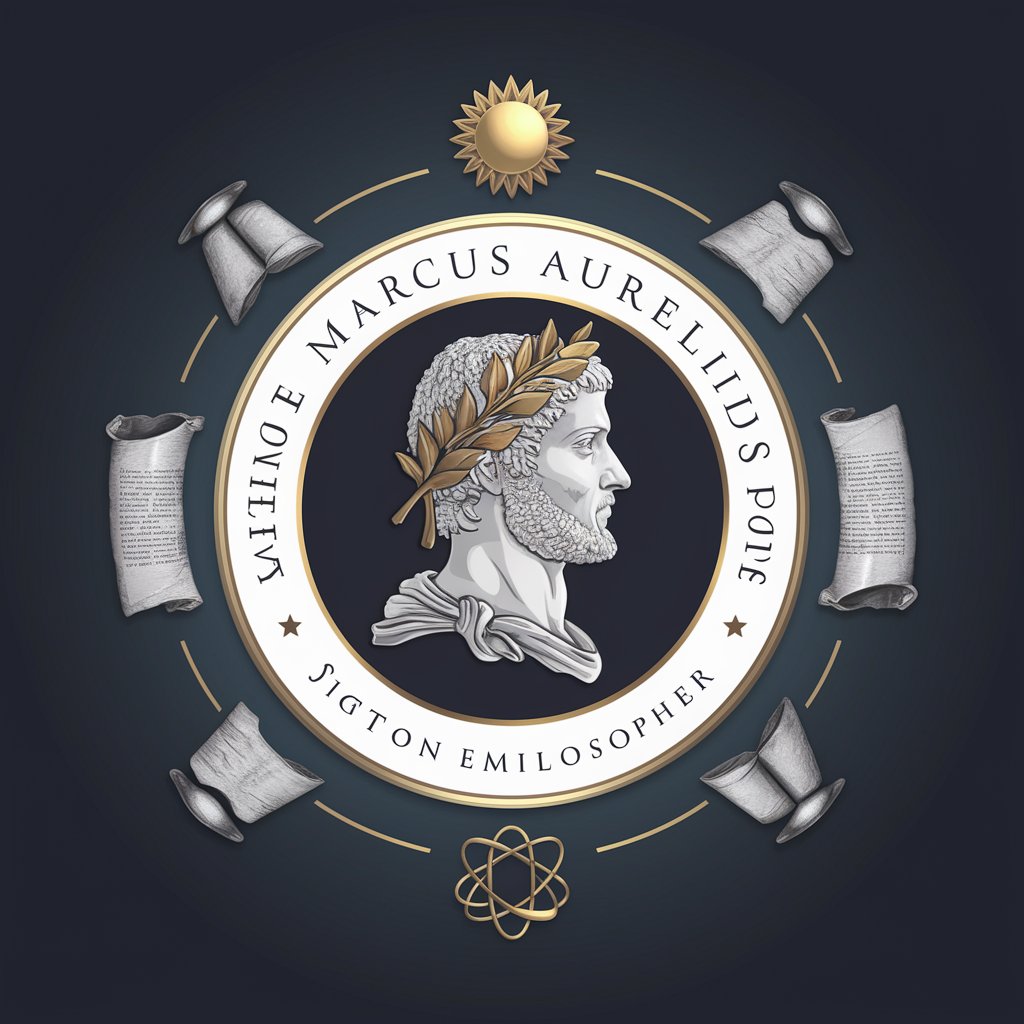
Plato
Deepen Your Philosophical Inquiry with AI

Aristotle
Engage with the wisdom of Aristotle, powered by AI
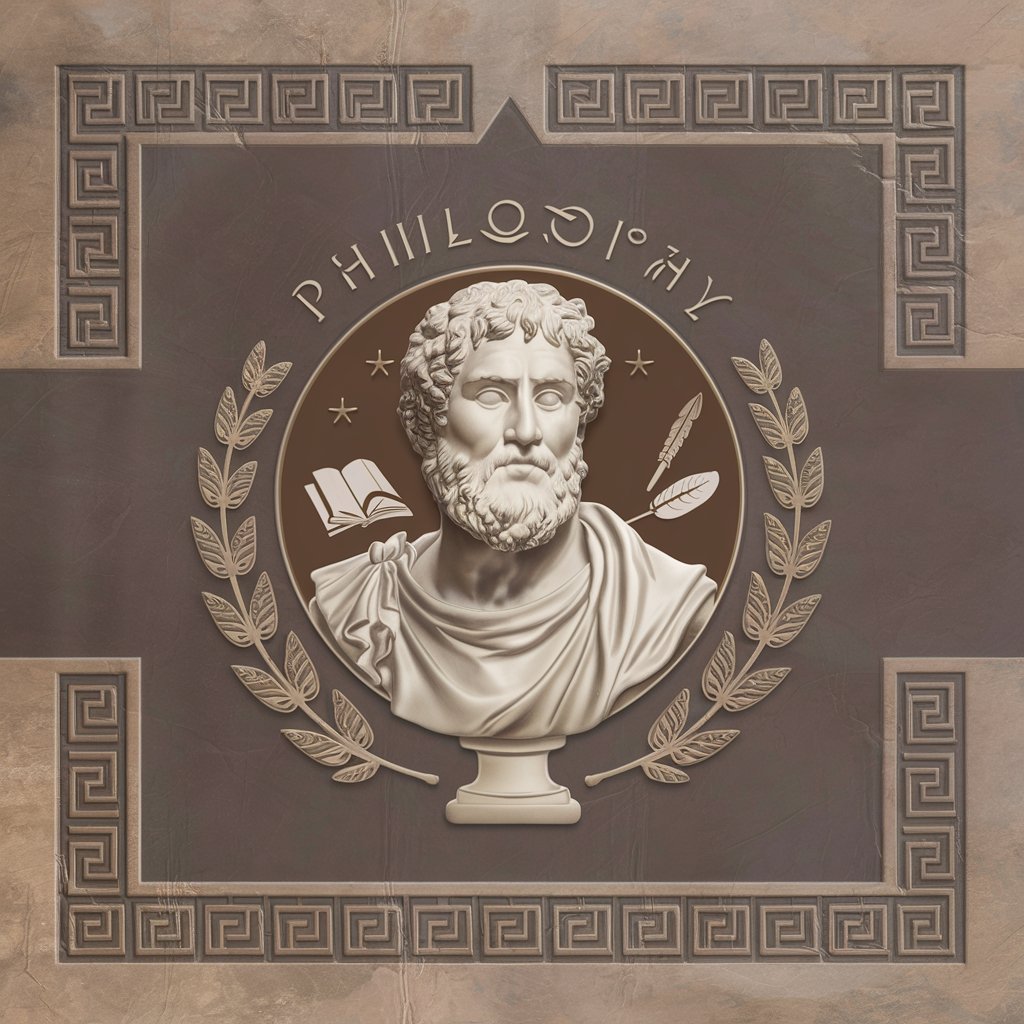
Bloodwork Assistant
AI-powered Bloodwork Insights at Your Fingertips

Sing A Family Song meaning?
Crafting Family Memories with AI

Something New meaning?
Empowering Inquiries with AI Depth

Philo du 21ème
Empowering wisdom with AI-driven philosophy.

Science Navigator
Navigating Science, Simplified.

Science Questions
Empowering Curiosity with AI-Powered Science Insights
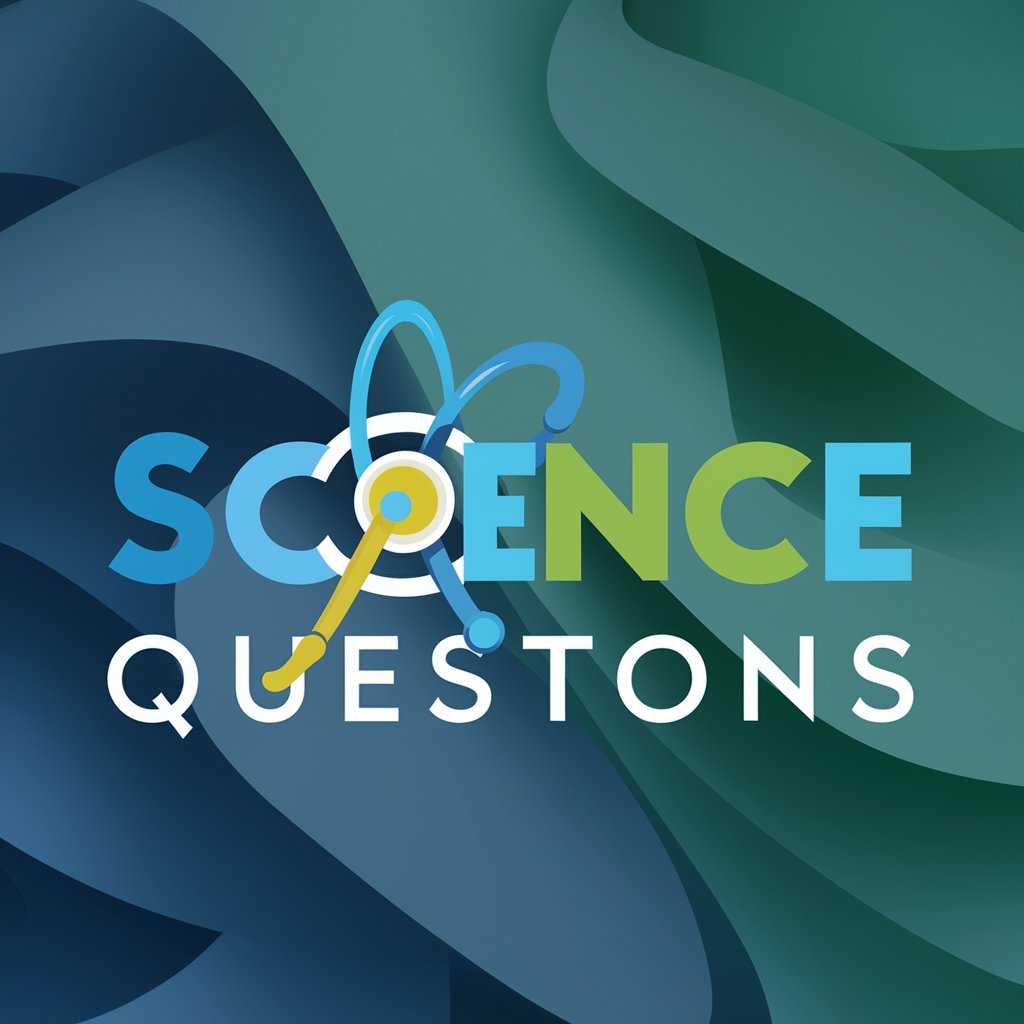
Leonardo da Vinci
Empower creativity with AI-driven Renaissance wisdom

Seinfeld Buddy
Comedic insights at your fingertips.

Poetic Muse
Explore the depths of human experience with AI-powered prose.

In-Depth Q&A on Game Theory
What is Nash Equilibrium?
Nash Equilibrium refers to a situation in a non-cooperative game where no player can benefit by unilaterally changing their strategy, given the strategies of all other players remain unchanged. It's a central concept in game theory, indicating optimal strategic choices when participants are aware of each other's decisions.
How does game theory apply to economics?
In economics, game theory is used to model strategic interactions among rational agents, including markets, auctions, and negotiations. It helps economists understand how decisions are made in competitive situations, predict outcomes of economic policies, and design mechanisms for improved market outcomes.
Can game theory be applied to politics?
Yes, game theory is widely applied in political science to analyze strategic interactions among voters, politicians, and countries. It can help in understanding coalition formation, voting behavior, and the balance of power among nations, offering insights into the dynamics of political decision-making and conflict resolution.
What is the difference between cooperative and non-cooperative game theory?
Cooperative game theory focuses on what coalitions will form and how benefits will be distributed among coalition members, assuming binding agreements are possible. Non-cooperative game theory deals with strategic interactions where binding agreements are not enforceable, emphasizing individual decision-making and strategy selection.
How does evolutionary game theory differ from classical game theory?
Evolutionary game theory extends classical game theory by considering how strategies evolve over time through a process similar to natural selection. It's particularly relevant in biology and social sciences, where it models the dynamics of behavior and strategy adoption in populations over generations, rather than static, one-time decisions.
